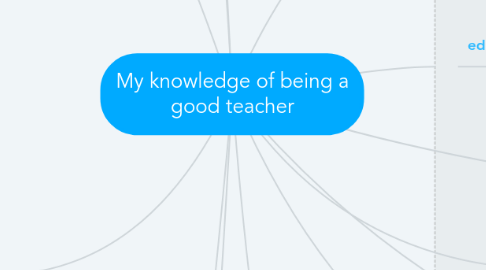
1. duties of a class teacher
1.1. good climate in class which improves learning
1.1.1. use of rules, rituals and routines
1.2. clarity of content
1.3. use of different methods
1.4. time for practice
1.5. individual promotion
1.6. transperent expectations of achievements
1.7. openess in lessons
1.8. fair
1.9. conflict resolution
1.10. constructive handlingwith mistakes
1.11. chances for the students to learn self- determination and codetermination
1.12. sructure in lessons
1.13. educate
1.14. advice
1.15. judge
1.16. teach
1.16.1. observe course of instruction
1.17. talk to parents
1.18. strenthens solidarity
1.19. being aware of dangers
1.20. supportment of all students
2. being influenced by
2.1. indivudals
2.2. own expectations with teachers
2.3. knowledge
2.4. inner and outer terms of school
2.5. world affairs
3. teamwork with colleagues
3.1. critical feedback
3.1.1. improves teaching
3.2. mutual supportment
3.3. cooperation
4. competence models
4.1. crictical view
4.1.1. use disparate terms and differentiate between them inconsistently
4.1.2. the Implementation in practice is difficult
4.1.3. a theoretical foundation is missing
4.1.4. key aspects have not been sufficiently empirically confirmed
4.2. The individual competency classes are equal in every model
4.2.1. professional competence
4.2.2. social competence
4.2.3. methodological competence
4.2.4. personnel competence
4.2.5. Four fields of action are derived from these competencies:
4.2.5.1. 1. Teaching Methodology
4.2.5.2. 2. Class Management
4.2.5.3. 3. Diagnostics and Promotion
4.2.5.4. 4. Development of School and Environment
5. Self-reflection questions on qualification
5.1. Teaching
5.1.1. Have you ever given tutoring lessons? Do you like explaining things to others? What do you think of the performance evaluation by grades?
5.2. Professional interest
5.2.1. What do you value about the one / alternative subject? What should your students learn professionally / socially / for life?
5.3. Person with optimal condition
5.3.1. How / when did you come up with the idea of becoming a teacher? What type of teacher / type do you want to become?
5.4. Person who wants to become optimal
5.4.1. What do you want to do better?
5.4.2. Why do you want to become a teacher?
5.5. Willingness to work in the system of school
5.5.1. How do you imagine working at the school? (Lessons, school profile, extra-curricular)
5.6. Interest from children and adolescents
5.6.1. What do children need at school?
5.6.2. Concretization of desire
5.6.3. Do you already have experience?
5.6.4. Permanence of desire
5.6.5. Introduction to the job: the same or different from what I experienced as a student?
5.7. Communication skills
5.7.1. Tell (and watch)
5.7.2. Can you imagine standing in front of a group and talking every day?
5.7.3. dialogue
5.8. General social skills
5.8.1. Have you worked with groups?
5.8.2. Are you interested and interested in dealing with people who live in completely different social contexts? (especially at the main and special school).
5.8.3. How will you feel as a future teacher in front of a class of 30 students?
5.8.4. What have you done so well in your life so far?
5.8.5. What went wrong with you?
5.9. Ability to deal with stress
5.9.1. How do you behave in situations where siblings / classmates annoy you?
5.9.2. How do you behave in situations where different opinions collide?
5.9.3. How do you deal with conflicts?
5.10. Lifelong learning
5.10.1. How should your professional life look like?
5.10.2. How do you behave if you do not know something?
5.10.3. What do you read for books / newspapers?
5.10.4. Afraid of routine? How to escape?
6. summary
6.1. being a good teacher means for me to
6.1.1. be openminded
6.1.2. do everything with love
6.1.3. take care of the children
6.1.4. Consider everything from different sides
6.1.5. Stand behind what you are doing
6.1.6. Continue training
7. image and expectations of a teacher depends on culture
7.1. acts suitable
8. question situations of education and teaching
9. educational mandate
9.1. expertise
9.1.1. handle special requirements
9.1.1.1. complexity
9.1.2. professional responsibilities
9.1.2.1. demands advanced trainings
9.2. suitable for children
9.2.1. age-based learning strategies
10. being professional
10.1. decision-making and responsibility
10.2. reflexive attitude
10.3. knowledge of
10.3.1. content
10.3.2. teachability
10.3.3. didactic and methodical opportunities

